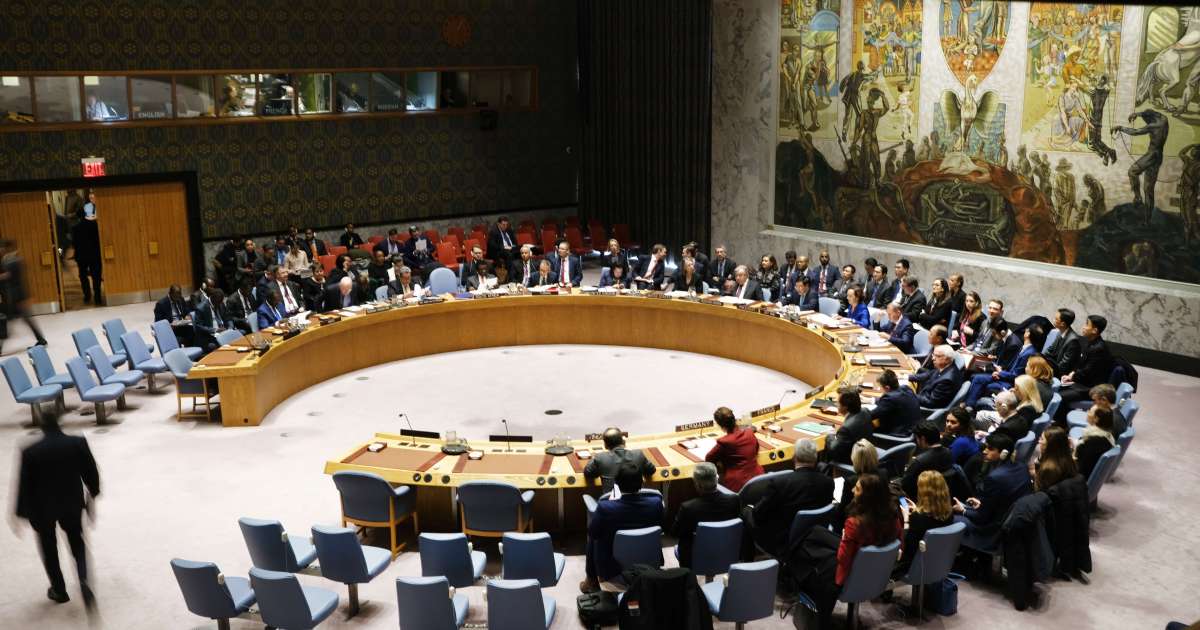Today, Tuesday, the UN Security Council will hold an emergency session on the Israeli military aggression on the Gaza Strip, which has so far led to the death of 212 Palestinians and more than 1,400 wounded, while a European statement is expected to be issued on the same subject at a later time.
The Security Council session came despite Washington's absolute support for Israel and its obstruction of issuing a statement by the Council during its three sessions during the last nine days.
"Tunisia, China and Norway will once again raise the Middle East crisis on the agenda of the Security Council on Tuesday," the Norwegian delegation said on Monday.
She pointed out that "the situation continues to deteriorate, and innocent civilians continue to be killed and wounded," adding, "We repeat: Stop the fire, stop hostilities now."
The release of council statements requires the unanimous approval of all of its 15 member states.
"We have consistently made it clear to council members last week that Washington is participating in intense diplomatic efforts at the highest levels to try to end this conflict," said Olivia Dalton, spokeswoman for the US mission to the United Nations.
The draft statement - which was obstructed by Washington on Monday - called for the situation to calm down, stop the violence and respect international humanitarian law, including the protection of civilians, especially children.
The draft expressed acute concern about tensions and violence in East Jerusalem, especially in and around the holy sites.
European meeting
In the same context, diplomats said that the European Union will call for a ceasefire in the occupied Palestinian territories.
European Union foreign policy chief Josep Borrell called for a video conference of the foreign ministers of the 27 bloc countries at 12:00 GMT.
"We have contacted our partners to see how we can defuse this dangerous and disturbing escalation of violence and contribute to stopping it," said Borrell spokesman Peter Stano, referring to the fiercest hostilities between Israel and the Palestinians in years.
It is noteworthy that the European Union is Israel's largest trading partner and a major donor of aid to the Palestinians, but it refrained from exploiting its influence and did not discuss the possibility of imposing sanctions on the Israeli government.
For a long time, the European Union has played a secondary role in the Middle East peace negotiations compared to the main role of the United States.
Opinions are divided over preparation for a joint statement, and Tuesday's meeting is unlikely to result in any new policies.
Supporters of the two parties
Eight small European states explicitly support the Palestinians, and at the forefront of this bloc are Luxembourg, Belgium, Ireland, Malta and Finland.
They argue that the European Union should do more to support the Palestinians in their bid to establish their independent state.
"Europe remains silent amid the noise of the bombs," wrote Belgian parliamentarian Simon Motkin on Facebook.
Other deputies called for sanctions against Israel.
Other countries such as Hungary, the Czech Republic, Austria, Greece, Cyprus and Poland are ready to defend the interests of Israel, and Austria raised the Israeli flag over the Federal Chancellery in Vienna last Friday.
Germany still feels guilty about the Nazi crimes in World War II, and is therefore not ready to discuss measures against Israel.
French President Emmanuel Macron said on Monday that he would work with the Egyptian president and the Jordanian king to put forward a specific proposal for a ceasefire and open a possible path for talks between Israel and the Palestinians.
Since May 10, the Israeli army has bombed civilian homes, government and civilian buildings and institutions in the Gaza Strip, and Palestinian factions have responded by firing rockets and missiles at Israeli cities and settlements.

